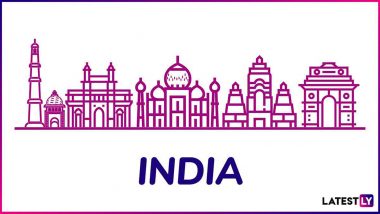Mumbai, Jan 10 (PTI) The Bombay High Court on Tuesday refused to defer the Indian Institute of Technology (IIT) JEE Mains examination scheduled this month.
A division bench of Chief Justice S V Gangapurwala and Justice Sandeep Marne held that it would not be appropriate to postpone the pan-India examination in response to a Public Interest Litigation as it would affect lakhs of IIT aspirants.
Also Read | Shiv Sena 'Rebel' MLA Nitin Deshmukh Who Changed His Mind in Guwahati, Gets ACB Notice Now.
The PIL was filed by child rights activist Anubha Sahai who wanted the Joint Entrance Examination (JEE) Mains to be deferred till March. The petition challenged the National Testing Agency's (NTA) December 15 notification scheduling the examination between January 24 to 31, 2023.
The petitioner contended that the schedule was announced at a very short notice. In the past, exam dates were declared three or four months in advance, giving enough time to students to prepare, Sahai said.
Also Read | Delhi: Cash Van Guard Shot Dead by Armed Assailant Near Jagatpur Flyover, Money Looted.
The HC, however, refused to grant any relief.
"If any orders are passed today directing postponement of January exams, the same may have cascading effect on future exams also. The extraordinary circumstances do not appear to exist for restraining respondents from holding January examination. Lakhs of students must have been preparing for exam," the court said.
Additional Solicitor General Anil Singh, who appeared for the NTA, opposed the PIL.
Since 2019, JEE Mains exams are being scheduled in two sessions, in January and April, he said.
If a student does not fare well in January, he or she can take the exam again in April for improvement and the better score is considered, the ASG said.
If a student does not appear in January, there is still no bar on appearing in April, Singh added.
The court said it was not in favour of interfering with the schedule as lakhs of students would have already started their preparations.
"Your PIL may affect 50,000 students, but not five lakh students. A Supreme Court judgment says that even if an educational policy is not good, the courts ought not to intervene," it said.
(This is an unedited and auto-generated story from Syndicated News feed, LatestLY Staff may not have modified or edited the content body)













 Quickly
Quickly
















